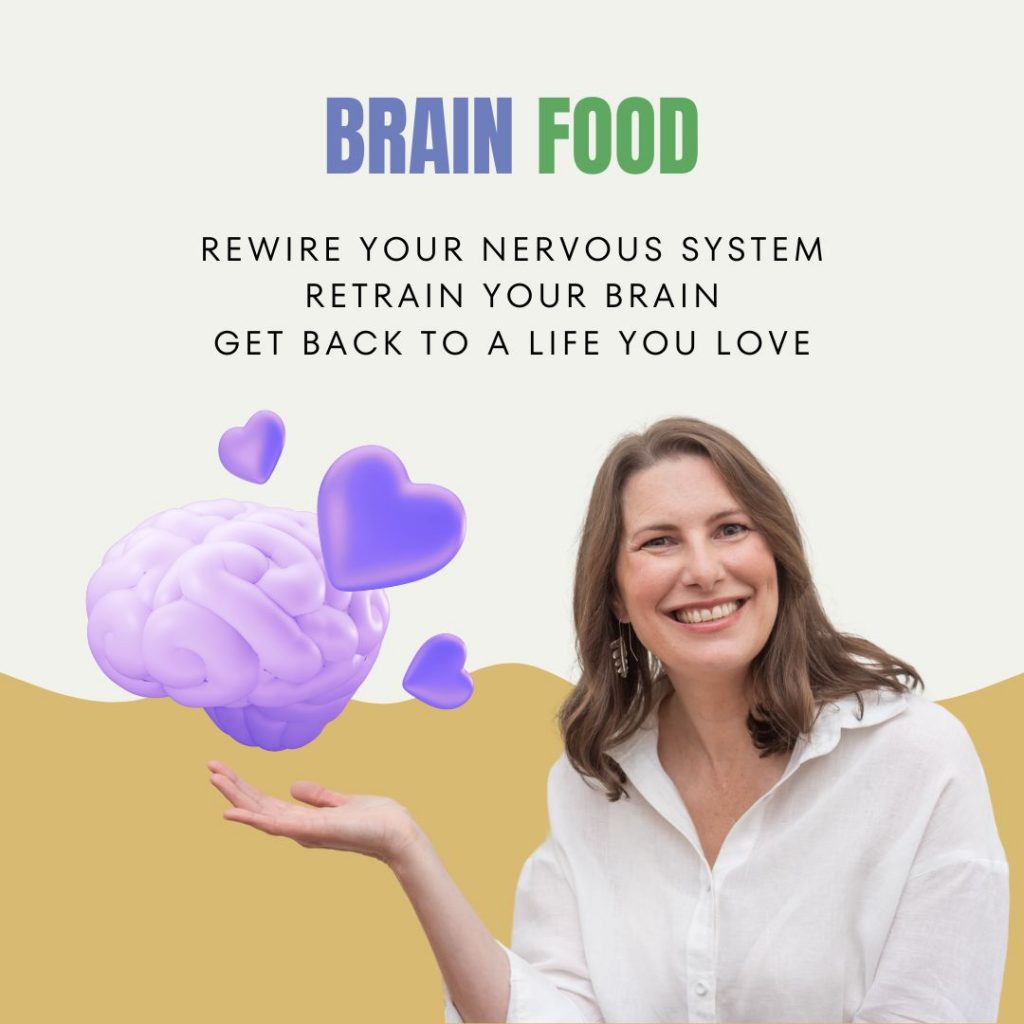Digestive and gut health are crucial to our overall well-being, affecting everything from our immune system and weight to our mental health. From a histamine intolerance perspective, gut health also plays a role in regulating histamine levels in the body and tolerance to foods and the environment.
Among the various components involved in digestion, pancreatic elastase, stomach acid, and other digestive enzymes play pivotal roles. Disruptions in the production of these enzymes can lead to various health issues, including histamine intolerance, malabsorption, SIBO, gut dysbiosis and food sensitivity.
In this blog, we will have a look at digestive enzymes and histamine intolerance, why your body might not be producing enzymes adequately—especially in the context of stress and nervous system health—and how addressing these issues holistically can lead to lasting improvements in health, particularly for those with histamine intolerance.
What is Pancreatic Elastase?
Pancreatic elastase is a digestive enzyme produced by the pancreas. It belongs to the family of proteases, which are enzymes that break down proteins into smaller peptides and amino acids, helping their absorption in the small intestine. Pancreatic elastase is unique because it is resistant to degradation, meaning it remains active throughout the digestive process, making it an essential marker for evaluating pancreatic function.
Low levels of pancreatic elastase in stool tests indicate exocrine pancreatic insufficiency (EPI), where the pancreas is not producing enough enzymes to support normal digestion. This insufficiency can lead to malabsorption, nutrient deficiencies, and various gastrointestinal symptoms, such as bloating, diarrhoea, and unexplained weight loss.
The Role of Stomach Acid and Other Digestive Enzymes
Stomach acid (hydrochloric acid or HCl) and digestive enzymes are crucial for breaking down food into its separate nutrients. Stomach acid initiates the digestive process by denaturing (unfolding) proteins and activating the enzyme pepsin, which further breaks down proteins into peptides. Adequate stomach acid levels are also essential to absorb minerals including calcium, magnesium, and iron, and to prevent bacterial or fungal overgrowth in the stomach and small intestine.
Other digestive enzymes, produced by the pancreas and small intestine, include amylase (which breaks down carbohydrates), lipase (which breaks down fats), and proteases (which break down proteins). These enzymes are vital for the complete digestion of food, allowing the body to absorb the nutrients necessary for energy, growth, and cellular repair.
Why Our Body Might Not Be Producing Enough Digestive Enzymes
A variety of factors can contribute to the inadequate production of stomach acid and digestive enzymes, with stress and nervous system imbalances playing a significant role.
1. Stress and the Nervous System
As we know, chronic stress has a profound impact on the digestive system. When the body is in a state of stress, the sympathetic nervous system (responsible for the “fight or flight” response) becomes dominant, while the parasympathetic nervous system (which promotes “rest and digest”) is suppressed. This shift can decrease the production of stomach acid and digestive enzymes, as the body prioritizes immediate survival over processes like digestion.
The vagus nerve, which connects the brain to the digestive system, plays a critical role in regulating digestion. Stress can impair vagal tone, reducing its effectiveness in stimulating digestive enzyme production and promoting gastrointestinal motility. Over time, this can lead to a vicious cycle where poor digestion exacerbates stress, and stress further impairs digestion. Often after a stressful event or long period of chronic stress our brain and body can get stuck in the fight/flight/freeze or sympathetic mode. Learn more about supporting the nervous system for healing with my program BrainFood which can get your nervous system and digestion back on track.
2. Age and Lifestyle Factors
As we age, the production of digestive enzymes and stomach acid naturally declines. Additionally other factors like:
- poor diet
- excessive alcohol consumption
- and certain medications (such as proton pump inhibitors and antacids) can further reduce enzyme production and stomach acid levels.
3. Gut Microbiome Imbalance
The gut microbiome—the diverse community of microorganisms living in our intestines—plays a crucial role in digestive health. Dysbiosis, an imbalance in the gut microbiome, can impair the production and function of digestive enzymes. Certain bacteria produce enzymes that help digest specific nutrients, and an imbalance in these bacteria can lead to malabsorption. Bacteria can also produce gases and other byproducts which can slow motility and impact vagus nerve tone.
Why do we need Digestive enzymes and Stomach acid?
Adequate levels of stomach acid and digestive enzymes are essential for several reasons:
- Nutrient Absorption: Digestive enzymes and stomach acid break down food into smaller, absorbable molecules. Without them, nutrients such as vitamins, minerals, and amino acids may pass through the digestive system unabsorbed, leading to deficiencies that can affect every aspect of health.
- Immune System Function: The gut is a major site of immune activity, with a significant portion of the body’s immune cells located in the intestines. Proper digestion is crucial for maintaining a healthy gut environment that supports immune function.
- Brain and Nervous System Health: The brain and nervous system rely on a steady supply of nutrients, particularly fats, amino acids, and vitamins like B12, to function optimally. Malabsorption due to inadequate enzyme production can lead to nutrient deficiencies that affect brain function, potentially contributing to anxiety, depression, and cognitive decline.
- Detoxification: The liver requires a constant supply of nutrients to carry out detoxification processes. Impaired digestion can reduce the availability of these nutrients, compromising the body’s ability to detoxify harmful substances.
The Long-Term Consequences of Impaired Digestion
If left unaddressed, inadequate production of digestive enzymes and stomach acid can lead to a range of long-term health issues, including:
- Malabsorption Syndromes: Chronic nutrient deficiencies due to poor digestion can result in conditions like anemia, osteoporosis, and muscle wasting.
- Gut Dysbiosis and Inflammation: Undigested food particles can feed harmful bacteria in the gut, leading to dysbiosis, inflammation, and increased intestinal permeability (“leaky gut”).
- Mental Health Issues: Nutrient deficiencies can affect neurotransmitter production, leading to symptoms such as anxiety, depression, and brain fog.
- Immune Dysfunction: Impaired digestion can weaken the immune system, increasing susceptibility to infections and autoimmune conditions.
Holistic Approaches to Healing the Gut and Nervous System
While supplementing with digestive enzymes can provide immediate relief from symptoms, it is essential to address the underlying causes of impaired digestion to achieve lasting health improvements.
1. Support the Nervous System
Reducing stress and enhancing the parasympathetic nervous system are key strategies. Practices such as mindfulness meditation, yoga, deep breathing exercises, and vagus nerve stimulation can help shift the body into a more relaxed state, promoting healthy digestion. We include many of these plus brain retraining and more tools in BrainFood.
2. Restore Gut Microbiome Balance
Probiotics, prebiotics, and a diet rich in fibre, and polyphenols can help restore a healthy gut microbiome. You can address gut dysbiosis through dietary changes as well as the nervous system. Our Low Histamine Kickstart program can help you follow a low histamine diet to both improve symptoms and help your gut to work better.
3. Optimize Diet
A diet that supports digestive health is crucial. One that also is low in histamine, consuming whole, unprocessed foods, reducing intake of sugar and refined carbohydrates (which can feed harmful bacteria), and including foods that naturally support enzyme production. Get started on a low histamine diet, with my free low histamine food guide.
4. Consider Nutritional Supplements
In some cases, targeted supplementation with digestive enzymes and nutrients like magnesium, zinc, and B vitamins may be necessary to support digestion and address deficiencies. I discuss this more in my article, nutrient deficiencies and histamine intolerance.
5. Address Underlying Health Conditions
Conditions such as small intestinal bacterial overgrowth (SIBO), SIFO, Bacterial imbalance, low bacterial diversity or chronic infections, and food intolerances can all contribute to impaired digestion and can be addressed by a practitioner as part of a comprehensive treatment plan. Could SIBO be causing your histamine intolerance?
Digestive enzymes and histamine intolerance alongside the gut microbiome and nervous system all play a role in health. By understanding and addressing the factors that impair enzyme production—particularly stress and nervous system imbalances—it’s possible to restore optimal digestion and improve overall health and reduce your food sensitivity and histamine reactions.

Stuck dealing with confusing, frustrating and chronic symptoms and can’t seem to figure out why?
Join BrainFood and learn how to use the latest Neuroscience to help your body heal.
Use easy tools to reduce symptoms, calm anxiety, improve sleep, increase tolerance to foods and activities and get better results from treatments.

 Low Histamine Winter Recipes
Low Histamine Winter Recipes